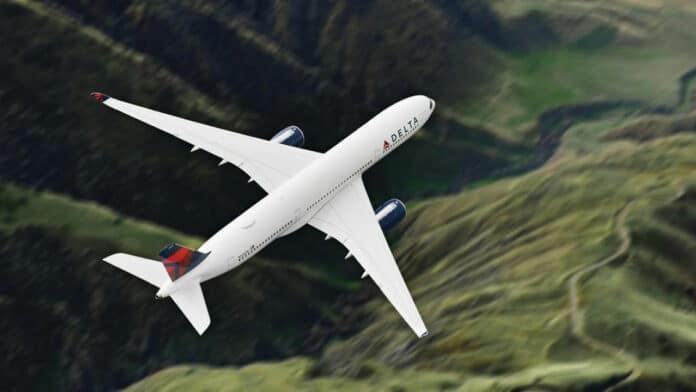Delta Air Lines has recently reaffirmed its commitment to operate clean commercial flights while reiterating that sustainable aviation fuel is one of the most important pillars for future green flights.
Sustainable aviation fuel (SAF) is one of the most promising levers known today to accelerate the industry’s transition towards a net-zero future. It can use the existing fuel infrastructure to get it to airports and is safe to use in current aircraft engines. Moreover, the use of SAF has the potential to reduce emissions by up to 80% and even has the ability to generate negative emissions in some cases.
Unfortunately, despite several years since SAF has been the center of attention, its lack of availability is still its number one drawback. According to Delta, there isn’t enough SAF available to fuel the world’s commercial airlines, even for a single day. This also makes green jet fuel currently 2 to 4 times more expensive than conventional jet fuel.
Many of the biggest aviation players worldwide are actively supporting various SAF-related projects. Delta is committed to investing in SAF for its fleet and working towards creating demand and attracting investment. Delta is also advocating for policy incentives to scale up the market so that all airlines can have access to more sustainable and affordable fuels.
Delta Global Sustainability and Fuel teams have been actively working over the last few years to encourage investment and advance the production of Sustainable Aviation Fuel by signing offtake agreements with various SAF producers. These agreements ensure that Delta will purchase SAF from the producer when it becomes available, subject to certain conditions.
To date, Delta has signed offtake agreements for over 200 million gallons of SAF, which marks a significant milestone in its goal of using 10% SAF for flying by 2030.
Earlier this year, the airline released its go-forward Sustainability Strategy, which outlines how Delta is decarbonizing its business across six core business areas. These areas include Ground Operations and Facilities, Clean Fuel the Travel Experience, Supply Chain, Efficient Aircraft Operations, and Revolutionary Fleet.
The industry has been discussing all of these areas for some time now. However, the most challenging area to address is the need for a revolutionary fleet. It will take several years for airlines to transition to next-generation, zero-emission aircraft, making this a long-term goal.
